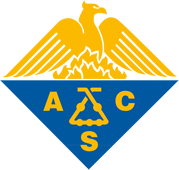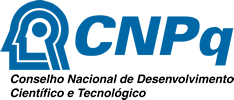Autores
Santos, M.P. (IFTO CAMPUS PARAÍSO DO TOCANTINS) ; Viroli, S.L.M. (IFTO CAMPUS PARAÍSO DO TOCANTINS) ; Carvalho, N.P. (IFTO CAMPUS PARAÍSO DO TOCANTINS) ; Luz, L.R. (IFTO CAMPUS PARAÍSO DO TOCANTINS) ; Candido, B.A.R. (IFTO CAMPUS PARAÍSO DO TOCANTINS) ; Lança, A.C. (UFT CAMPUS GURUPI) ; Alves, T.T. (UFT CAMPUS GURUPI) ; Rosa, T.O. (IFTO CAMPUS PARAÍSO DO TOCANTINS)
Resumo
The learning object (LO) is a digital or non-digital resource that collaborates
for the teaching, learning and knowledge of the individual, contributing to the
pedagogical practice inside or outside the classroom. Faced with the need to
insert new learning objects into teaching, this study evaluated an ionic roulette
game developed with the PowerPoint program for teaching the nomenclature of
inorganic functions. The study was carried out in an exploratory and descriptive
way with the intention of evaluating the game applied to 40 students of the 1st
year of high school. After the game, a questionnaire was applied. The game
presented satisfactory results, helping the fixation and contributing to the
learning of the formulation and nomenclature of inorganic functions.
Palavras chaves
Educational game; Chemistry teaching; Teaching learning
Introdução
The learning object (LO) is a digital or non-digital resource that collaborates
for the teaching, learning and knowledge of the individual, contributing to the
pedagogical practice inside or outside the classroom (ALVES, 2020). The new
Information and Communication Technologies - NTICs are technologies inserted in
the classroom related to the ability to acquire, store, process and distribute
information from digital media providing numerous educational resources, which
can be used inside or outside the classroom, on computers, tablets and cell
phones (CRISÓSTOMO et al, 2018a). The association of the NTICs with the AO
provides the teacher with the opportunity to develop attractive and dynamic
classes, meaningful activities for students, in addition to valuing their
teaching practice by students (ALVES, 2020). Games are examples of learning
objects inserted in NTCIs that can collaborate with the teaching-learning
process of students, enabling the development of Chemistry content in a simple
way through creative classes close to the student's daily life (GONÇALVES et al.
2019; OLIVEIRA et al. 2019). According to Garutti and Ferreira (2015) the
introduction of NICTs in the pedagogical environment provides more opportunities
than traditional class models. Games are examples of learning objects that can
collaborate with the teaching-learning process of students, enabling the
development of Chemistry content in a simple way through creative classes close
to the student's daily life (GONÇALVES et al. 2019; OLIVEIRA et al. 2019) .
Faced with the need to insert new learning objects into teaching, this study
evaluated an ionic roulette game developed with the PowerPoint program for
teaching the nomenclature of inorganic functions.
Material e métodos
The study was carried out in an exploratory and descriptive way with the
intention of evaluating a game entitled "Ionic Roulette" developed with the
Microsoft PowerPoint program for teaching formulas and nomenclature of inorganic
functions to help the knowledge and fixation of the content exposed by the
teacher in the classroom. The game was developed by students of the 5th period
of the Degree in Chemistry in cooperation with students of the 6th period
Information System Course of the Instituto Federal do Tocantins Paraíso do
Tocantins campus. The game was applied to 40 students from the 1st year of High
School Integrated to the Agroindustry Technician Course in June 2022 who study
at the same institution and campus. The research was carried out with the
division of the class into pairs, delivery of a table on a sheet of bond paper
containing the names of anions and cations to help students at the time of the
game, explanation of the rules of the game and the game Ionic roulette for each
pair. After the application of the game, an evaluation questionnaire was applied
with the following closed questions: 1. Was the game easy to understand and use?
2. Is the game design appealing? 3. Does the game have clear and understandable
rules? 4. In your opinion, can the game be used outside the school environment?
5. Did the game help in fixing the content? 6. Is the game content related to
the course? 7. Did the game contribute to the learning of the content? 8. Did
the game make it possible to remember some content taught in the classroom?9.
Would you rather learn with this game than another teaching method? 10. Do you
approve of the game? 11. In your opinion, what is most important in a didactic
game? so that the students could evaluate the game.
Resultado e discussão
Graph 01 informs the students' answers in relation to the evaluative
questionnaire applied to the students to learn about the use of the Ionic
Roulette game. Figure 2 represents the stages of the Ionic Roulette game.
According to the results shown in Graph 1, it is observed that the Ionic
Roulette game was easy to understand and use by the students (100%), presenting
an attractive game design (85%), having clear and understandable rules (85 %),
being able to be used outside the school environment (80%), helping to fix the
content (85%), with the content related to the subject (80%), contributing to
the learning of the content (80%), making it possible to remember content taught
in the classroom (70%), preference in learning with the game Ionic Roulette than
another teaching method (85%), Approved by students who used the game (85%) and
finally when asked what it is considered the most important in a didactic game,
the students answered fun (65%), inclusion (20%), Interaction (10%) and
creativity (5%).The Ionic Roulette game contributes to helping the learning of
students with assembly difficulties of formulas and nomenclature of inorganic
functions, as it was satisfied sfactory presenting results greater than or equal
to 70%) in all questions questioned. Crisóstomo et al. (2018b) also performing
analysis of a game produced in Microsoft Power Point also obtained satisfactory
results after evaluating the game by the students. Ferreira et al. (2019),
applying a game about organic functions for 3rd year high school students,
reported that the game provided dynamic, playful classes, and contributes to
contextualized learning, generating moments of socialization, exchange of
knowledge and relaxation in the classroom.


Conclusões
The evaluation of the game Ionic Roulette by the students of the 1st year
Integrated in Agroindustry presented satisfactory results, where all the
evaluated items presented values equal to or greater than 70% of approval. It was
possible to verify that the applied game helped in the fixation and contributed
to the learning of the content of the formulation and nomenclature of the
inorganic functions. positively impacting the teaching and learning of students
in the 1st year of the High School Integrated in Agroindustry, providing a
pleasant and fun environment.
Agradecimentos
TO GOD, to the IFTO Paraíso do Tocantins campus
Referências
ALVES, T. R. de S. Os objetos de aprendizagem no ensino de química: um levantamento exploratório junto a professores do ensino médio. Revista Scientia Naturalis, v. 2, n. 2, p. 508-524, p.508-524. 2020. Disponível em: https://periodicos.ufac.br/ index.php/SciNat/article/view/3820/2396. Acesso em: 10 mar. 2022.
CRISÓSTOMO, L. C. da S.; MARINHO, M. M.; COSTA, C. de M. M.; MARINHO, G. S.; MARINHO, E. S. Avaliação de aplicativos para o ensino de Química Geral disponível para dispositivos móveis. 23º Seminário Internacional de Educação, Tecnologia e Sociedade. v. 7 n. 1. P. 1-10. 2018a. Disponível em: https://seer.faccat.br/index.php/redin/issue/
view/51. Acesso em: 10 mar. 2022.
CRISÓSTOMO, L. C. da S.; MARINHO, M. M; MARINHO, G. S; MARINHO, E. S. Avaliação de um jogo pedagógico desenvolvido com o powerpoint para o ensino de química. 23º Seminário Internacional de Educação, Tecnologia e Sociedade. v. 7 n. 1. P. 1-10. 2018b. Disponível em: https://seer.faccat.br/index.php/redin/article/view/1067. Acesso em: 12 abr. 2022.
FERREIRA, J.F.; SANTOS, J.C.O.; FERREIRA, B.N.; FONSECA, L.L.S.A.; DANTAS, T.R.; AZEVEDO, A.S.; CARDOSO, M.L.M.S.; GARCIA, J.D.R.; ARAÚJO, J.V.S.; SANTOS, D. Utilização de jogos didáticos no ensino de funções orgânicas. In: CONGRESSO BRASILEIRO DE QUIMICA, 59., 2019, João Pessoa. Anais Eletrônicos [...]. João Pessoa, 2019. Disponível em: http://www.abq.org.br /cbq/2019/trabalhos/5/956-27759.html. Acesso em: 21 maio 2022.
GARUTTI, S.; FERREIRA, V.L. Uso das Tecnologias da Educação e Comunicação na Educação. Revista Cesumar Ciências Humanas e Sociais Aplicadas, v.20, n.2, p. 355-372. 2015. Disponível em: https://periodicos.unicesumar.edu.br
/index.php/revcesumar/article/view/3973. Acesso em: 12 de abr. 2022.
GONÇALVES, A.C.C.; DE SOUSA, A.C.A.; CUNHA, J.N.F.; PATRÍCIO, J.C.; SCHWINGEL, J.F.; ESGALHA, S.P.V. Aplicação do jogo didático inclusivo missão orgânica no Instituto Federal de Mato Grosso. In: CONGRESSO BRASILEIRO DE QUIMICA, 59., 2019, João Pessoa. Anais Eletrônicos [...]. João Pessoa, 2019. Disponível em: https://www.abq.org.br/cbq/2019/trabalhos/6/999-27912.html. Acesso em: 21 maio 2022.
OLIVEIRA, P. D.; BARROSO, G, R.; CARVALHO, N, F.; RIBEIRO, dos S. K.; DONZA, S. M. V.; DE BRITO, V. M.; PANTOJA, C. M. Estudo de ligações químicas: aplicação de um jogo didático e sua importância para o ensino de química em um cursinho popular de Belém do Pará. In: CONGRESSO BRASILEIRO DE QUIMICA, 59., 2019, João Pessoa. Anais Eletrônicos [...]. João Pessoa, 2019. Disponível em: https://www.abq.org.br/cbq/2019/trabalhos/6/455-27262.html. Acesso em: 11 maio 2022.
















